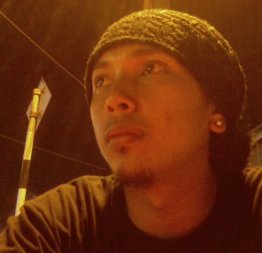
7 Aug 2009 - 18 Sep 2009
at GALERI PETRONAS (Level 3, Suria KLCC)
In conjunction with Malaysia's 52nd anniversary, GALERI PETRONAS is pleased to present our latest exhibition entitled "CHANGING PHASES: Relative Spaces" as part of PETRONAS' Merdeka celebrations. This exhibition is the Malaysian segment of the touring exhibition that was held at the Viet Art Centre, Hanoi in September 2008.
CHANGING PHASES: Relative Spaces explores the development of Malaysian art practices, examining the contemporary social environment of Malaysia and its relationship with its ASEAN neighbours since the 1950s, with selected artworks from the PETRONAS Art Collection. Curated by Shireen Naziree, prominent South East Asian art historian, this exhibition also presents the works from the PETRONAS Art Collection as markers of Malaysian visual history. It offers a visual journey into the development of modern Malaysia – visitors will be able to witness and experience rarely- seen historically-significant artworks by established Malaysian-born artists. Their art will take visitors through the social development and economic growth of the country, depicting the evolution of the Malaysian psyche and identity into the progressive nation as we know it today.
CHANGING PHASES: Relative Spaces addresses relevant issues affecting Malaysia since our independence through the display of artworks that have been mostly produced from the 1960s until the present. The broad spectrum of artworks in the exhibition also highlights the diversity of Malaysian art practices contained in the PETRONAS Art Collection. The exhibition presents 39 artworks by 21 artists, from the established seniors like Latiff Mohidin, Syed Thajudeen and Khoo Sui Hoe, passing through mid-career artists Simryn Gill and Mad Annuar Ismail, to new generation artists Ivan Lam, Yau Bee Ling and Roslisham Ismail, among others. The need to understand and preserve our traditional values and cultural identity amidst economic and social development in an increasingly borderless world is a message which is echoed throughout the exhibition.
In essence, CHANGING PHASES: RELATIVE SPACES: Relative Spaces is a celebration of the Malaysian story in conjunction with the nation's 52 year of independence and PETRONAS's 35 years of operations as we mark our 35th anniversary this 17th August 2009.
1. HALAL by Jailani Abu Hassan
2. MEDITATION IN GOLD By Khoo Sui Hoe
3. VOYAGE-1 by Abdul Latiff Mohidin
4. CENGKAMAN by Hamir Soib
5. PENANG HILL by Yong Mun Sen
6. HOMAGE to VANISHING WORLD?? by Shia Yih Yiing
UPCOMING SIDETRACKS
Changing Phases: Lecture Series II
Date: Saturday, 22 Aug 2009
To give further insight into the exhibition and the PETRONAS Art collection.
Saturday
22 Aug 2009
3:00 p.m.
LECTURE SERIES II
The social value of corporate collections. This will include works from the corporation's international offices
Presenter : Shireen Naziree
For more information, kindly contact:
Shamala Bai Rao, Manager, Marketing & Visitor Services:
03 2051 1814 / 012 205 3524 / shamala@petronas.com.my
Juhan Kamaruddin, Marketing & Communications:
03 2051 5930 / 012 2276503 / juhan_k@petronas.com.my
Grace Chang, Marketing & Communications:
03 2051 9150 / 017 335 5515 / chang_puiyan@petronas.com.my
+ Participation is FREE and open to all.
+ Programme information is subject to change without prior notice.
+ All programs will be presented in English & Bahasa Malaysia. Please call 03-2331 7770 to register.
( all source and information taken from www.petronas.com.my/galeri )
Read more...









